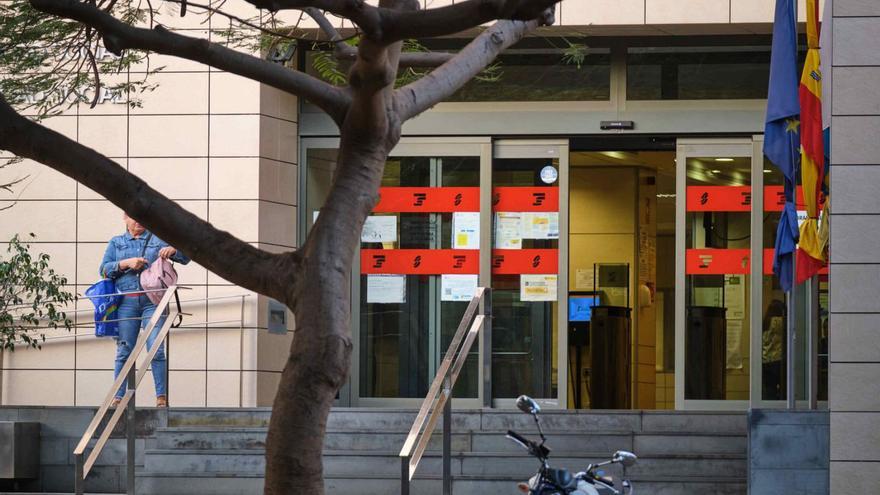
Months for care after making an appointment by phone or via the internet in the Tenerife. This is the reality of the Social Security Institute, at least in the last months of last year and the first of this 2023. In March, the Cabildo de Tenerife approved an institutional motion to urge the Government of Spain to find a solution, through a Shock Plan, to a structural problem that seriously weighs down the people of Tenerife.
The situation reached its limit in May with the announcement by the CSIF and CCOO unions of the first strike in the organization in its hundred years of history. The Ministry stopped it in extremis. But the lack of personnel is secular, the workloads are increasing in direct geometric proportion to the benefits to be covered and the one who pays is the citizen, in this case from Tenerife. A hot potato for the National Executive that comes out of the elections of the next day 23.
Institutional motion. The Cabildo de Tenerife, at the request of the CC-PNC group, approved in plenary session last March “to demand a solution to end the queues at the National Institute of Social Security (INSS) and improve care for people in Tenerife ». She was defended by the then nationalist councilor and today the insular director of Security in the Government of Rosa Davila, Ivan Martin. The intention was for the Ministry of Inclusion, Social Security and Migrations to put into practice “effective and efficient policies to urgently fix the chaos that citizens endure – then and in part now too – when doing their Security procedures. Social”.
The problem. To the chronic lack of personnel we must add a web page that is difficult to access for the general population, with changing terminology, designating the same benefit in a different way, depending on the Social Security affiliation regime. In addition to “security systems that make its application incompatible with the majority of computer users”, indicates the explanatory statement, which, it adds, “results inaccessible to the elderly and also to a significant part of the current population, in general ».
Shock plan. The motion requested a Shock Plan to reinforce the staffing and, likewise, “adopt the necessary measures to recover face-to-face attention in all Social Security Offices in order to guarantee quality attention to all people, especially to the most vulnerable. Without forgetting to expedite the measures adopted to improve the accessibility of web pages and digital tools that allow a better understanding, through simple language, of benefits and services. It also proposes “preferential, personalized and face-to-face care for people over 65 years of age.”
Unions. The unions rejected the initial measures of the Ministry as a solution to the collapse in care. They described Minister Escrivá’s proposals as “occurrences.” Among them overtime or pay six euros per citizen served. They clarify that “we are already saturated with work and what we need is personal, personal and personal. Call oppositions and fill places ». The CSIF points out that “the workload during the pandemic was immense and we tried to respond as best as possible from home, but with 25% less staff and more workload.” They understand that “it is difficult for the citizen to get an appointment in the office because it is poorly designed.” They also raise the problem of “management blockage, the time it takes to process a benefit, pensions, retirement, family support or maternity. We are increasingly overloaded and the citizen is captive because he comes to ask how things are going. It is not resolved in a reasonable time, it comes every week and the system collapses. Insular features with endemic understaffing and unattractive positions add to a national problem. More than six months on average for family benefits, seven or eight for the Minimum Vital Income and almost a year for claims.
Key benefits. The benefits “are a set of measures to anticipate, repair or overcome certain situations of misfortune or specific states of need, which usually cause a loss of income or an excess of expenses”. For the most part economic, the benefits are multiple and varied, for life. These are the main ones: obtaining the Social Security number and affiliation; recognition of the right to health care; financial benefits during pregnancy; before the birth and care of the minor; due to temporary or permanent disability; by retirement; widow’s or orphan’s pensions; special compensation for work accidents and occupational diseases; relatives of dependent minors in case of disability; for unemployment (SEPE). and cessation of activity of self-employed; social services (Imserso).
A fundamental right “at risk”
José Luis Arias Machuca is a lawyer and provides his legal vision on the obligation to request a prior appointment to access the Social Security offices: «In my opinion, it is not lawful to hinder the assistance of the administrator to the different public bodies with a methodology sterile because it is ineffective and tortious». He wonders: «What is hidden behind a complicated and impossible instrumentation in terms of access to the minimum benefits?». He values: “Total lack of funds, as well as personnel and poor administration with a blatant lack of empathy towards citizens who see how their urgent investigations are delayed in eternal bureaucratic procedures that do not help, but rather reduce agility.” He concludes. «The fundamental rights enshrined in our Magna Carta allude to the social, economic and legal protection of the family. They are violated when the citizen is left in a defenseless situation before the Administration for not granting him access ». | JDM
















